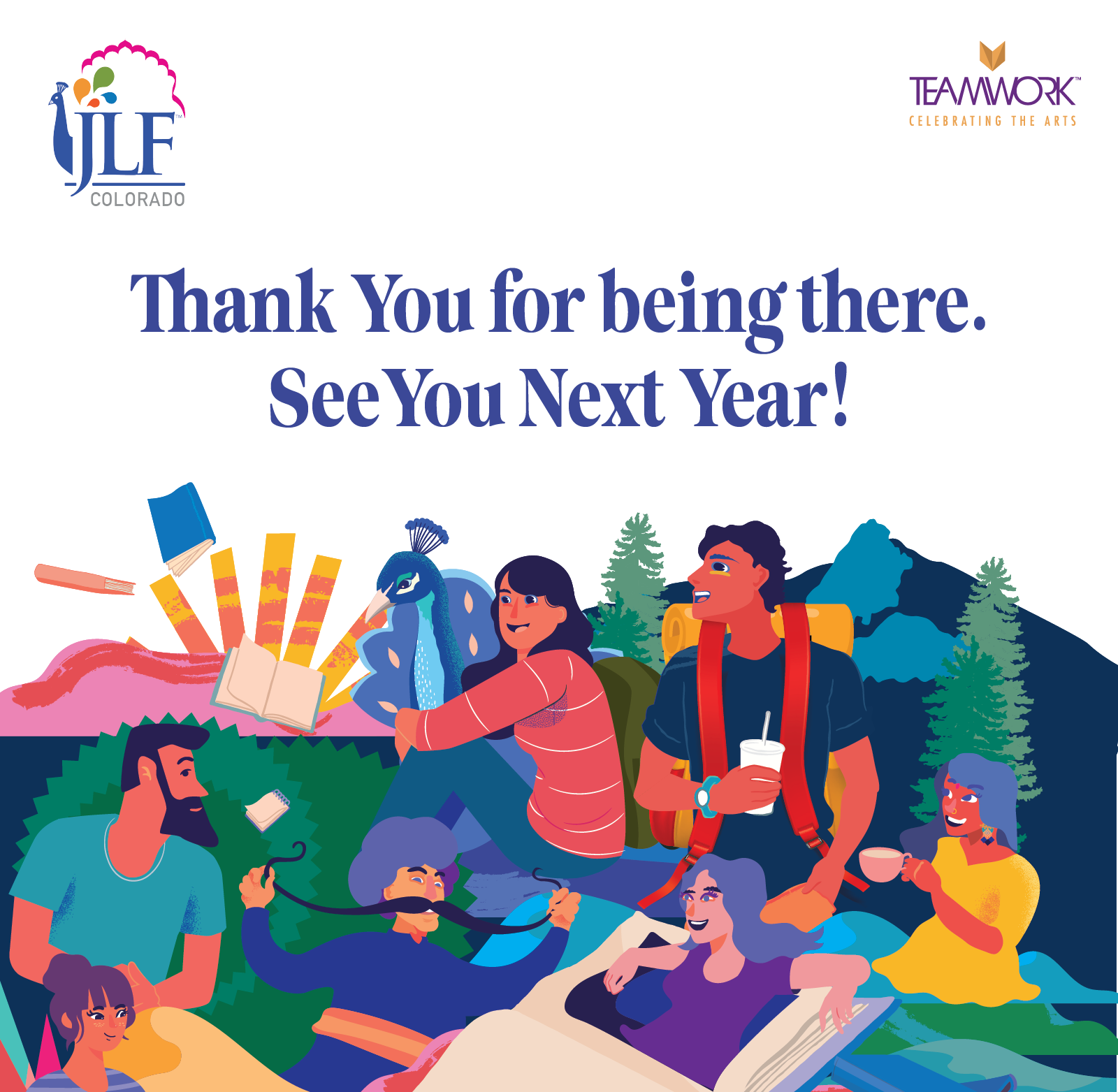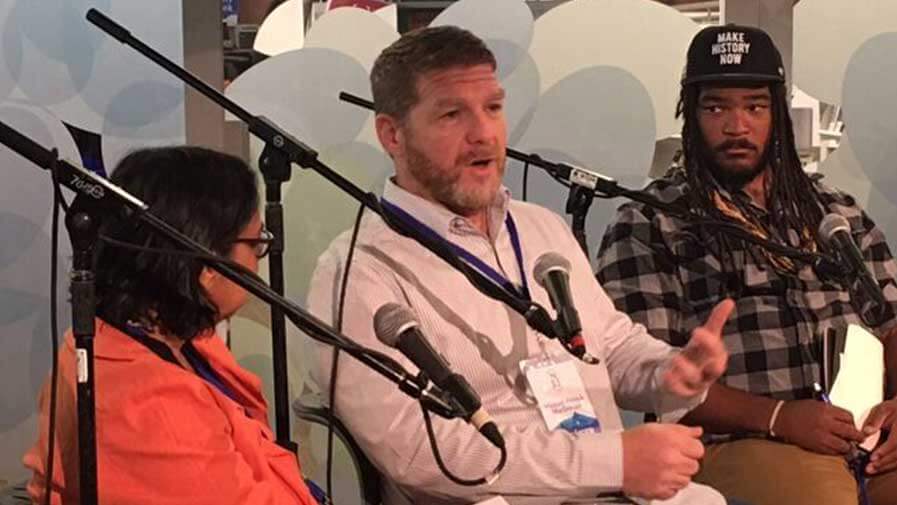


Guns and Roses – Where Have all the Roses Gone?
By Jules Marie, Official JLF@Boulder Blogger
Michael Patrick MacDonald lost four of his 11 siblings to guns, crime or poverty. His brother was falsely accused of a gun crime, his mother was shot (and survived) as she was standing in the kitchen washing dishes. MacDonald faced a crisis in his young life: To be suicidal or homicidal? Would he take his own or someone else’s life, or do something about the guns and crime that had become a ‘normal’ part of his childhood?
“In 1990, America was suffering from an unprecedented number of gun deaths in Boston. We heard about homicides and multiple shootings daily, all concentrated in poor and vulnerable communities of color. We became numb to it. We had a strict code of silence in our neighborhoods. I lived in a state of trauma. That transformed me. Did I want to live or die? I was on the edge. If I want to live in this world I have to do something about what happens to families like mine. That means reaching across strongly defended neighborhood boundaries to be an activist. I gravitated toward survivors, moms whose kids had been lost and were still generous and concerned about prevention. We organized a gun buyback program in Boston with these mothers. It was a central force for bringing people together and it built community. It was a very successful grassroots movement as it helped reduce juvenile gun violence in the city. It was known as The Boston Miracle,†shares MacDonald.
Aurora Poet Laureate Jovan Mays, joined the discussion to share how he was selected to unify the community through words after the Aurora, Colorado movie theatre shooting. He asked himself what he could use for writing prompts that would allow someone to write about something they had previously kept quiet about. “This writing is self-confessional. I take my hardest things and write them into existence. Many are impacted by hard issues and it’s challenging to put it into a body of writing but we’ve found it helps people process these tragedies and traumas,†says Mays.
What can be done about gun violence?
Author Ruchira Gupta is the founder of Apne Aap Women Worldwide, an Indian anti-sex trafficking organization. In moderating the session she asked what it would take to replace guns with roses. What is the tipping for changing people’s minds and hearts? When will people think ‘I don’t even want to buy a gun’? She notes that Indians stress non-violence, there is no gun culture in India and even the police don’t carry guns.
MacDonald replied that sensible gun legislation is needed but his battle is with the survivors telling their stories. He encourages people who have been most impacted by gun violence to take on the role of gun advocates and educate the public about guns. He stressed it’s critical to de-escalate what feels like an arms-race. Weaponry is more sophisticated than ever and the police are virtually weaponized like the military, and sadly, people have access to these same weapons.
Mays witnessed his first murder while roller skating one afternoon with friends. “One minute my friend was skating and eating popcorn and the next he was … dead,†says Mays. “I don’t think anyone wants to carry a gun around but when they see things like this, they wonder what they need to do to feel safe so they go and buy a gun.â€
Find Michael on Twitter @mickpaddymack or visit him at www.MichaelPatrickMacdonald.com to check out his latest book: All Souls: A Family Story from Southie.
Jovan is on Twitter @Jovanmays or visit www.jovanmays.com



Leave a comment